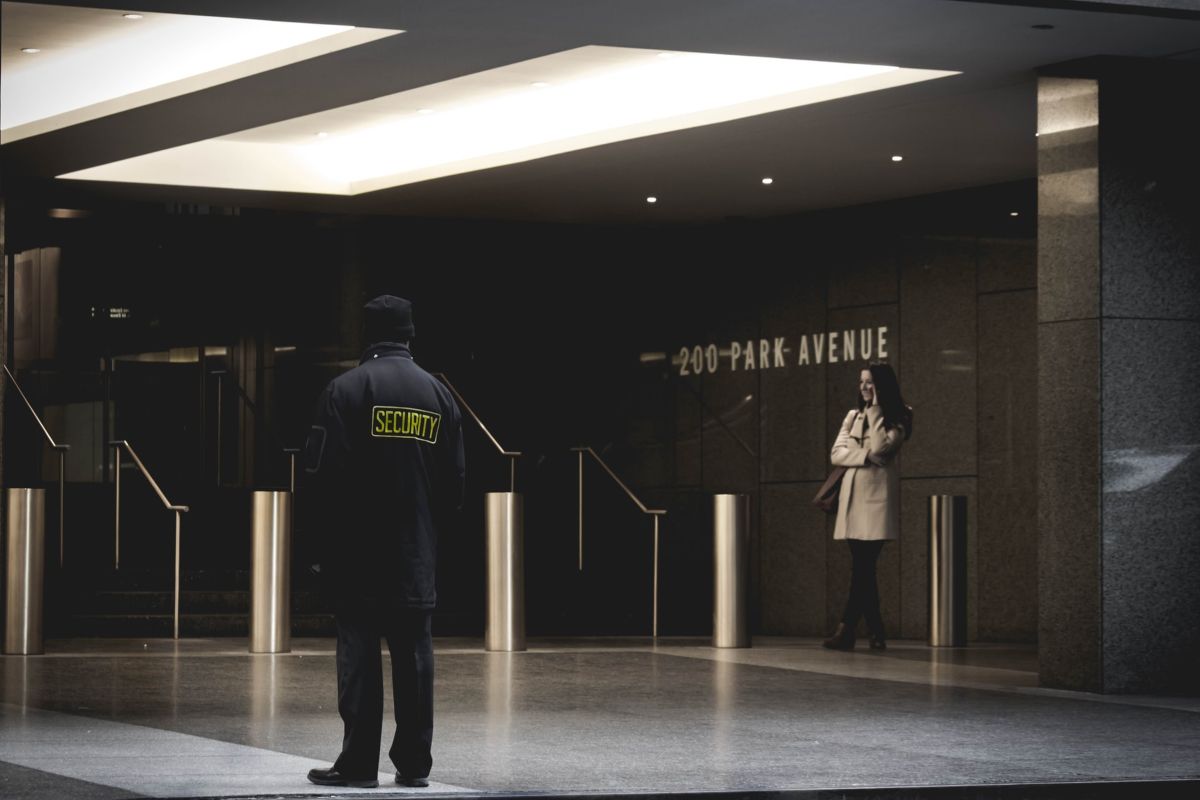Security guards play a key role for businesses and residences as their presence alone can deter unwanted behavior. While companies are keying into the benefits of having physical security present, others have their reservations.
Some of the conceptions about security guards either sway these companies to invest in AI and automation for their security needs, or avoid the topic of security altogether.
This article highlights and debunks some of the major misconceptions that companies and individuals may have acquired about security guards.
Despite there being a high demand for security guards, labor shortages prevail, in part due to myths about the profession, leading to a reduction in interest.
The Security Industry is More Dynamic Than You Might Think
Perhaps the foundation of these common misconceptions comes from the lack of information about the security industry. People do not always fully grasp the different types of security guards and their unique roles.
1. Government Security Guards
Security guards here work for the government and protect government employees and properties.
They are often armed so that they can defend public officials in times of emergency. These guards undergo rigorous training and cannot have criminal records.
2. In-House Security Guards
You will find these guards in establishments like hospitals, banks, hotels, and similar organizations.
Companies hire the guards directly rather than through private security agencies, and the guards operate according to the company’s expectations.
3. Contract security guards
Private security agencies hire contract guards and assign them to clients according to their skills and experience. It’s an ideal choice for companies that want tailored security. Security companies may have positions for some or all of the following:
- Armed security guards – armed security guards are licensed to carry firearms. They work in high-risk areas where physical crimes or robberies are likely. Armed guards may be former law enforcement officers. These staff undergo a lot of training so that they know how to use their firearms correctly in emergency situations
- Unarmed security guards – in comparison, unarmed security guards are physically present on the premises, but they do not carry firearms. That being said, they still may have batons or mace on them
- Patrol guards – patrol guards work in both commercial and residential settings, and look for anything unusual as they complete their routes. A tour guard system like Patrol Points provides guards with a mobile-friendly solution. It also offers more transparency to clients and supervisors as they can see what’s happening in real time
- Bodyguards – bodyguards are personal security guards whose duties are to protect a particular individual. Dignitaries move around with these agents for personal security
- Video surveillance security guards – These are trained operators that monitor surveillance systems. They maintain a low profile, but collaborate with other security agents to deter crime
5 Common Misconceptions Companies Have About Security Guards
1. Security Guards are Expensive
Small businesses in particular dismiss the idea of hiring security guards because they are very worried about the costs.
Yes, hiring people is more costly than using simple surveillance cameras, but rates are flexible. Companies can have guards on for 6 to 8 hours on weekends, or whenever the property is most vulnerable.
2. Security Guards are Only Necessary For High-Risk Areas
This misconception can put your business at risk; waiting until there is an active security concern means your reacting to a situation instead of doing something to prevent it from occurring. Security guards are vital to malls and grocery stores.
While risk is low, small crimes, such as shoplifting may occur frequently. In addition to reducing criminal activity, security guards can also increase customer service by providing directions or answering simple questions.
3. Security Guards Are Unnecessary With AI Security Tools Available
While the security industry is driven largely by technology, the best security strategies are ones that incorporate people and technological tools. Even after installing alarms and other monitoring systems, you need security guards to monitor the systems and intervene if a crime is in progress.
4. Security guards are uneducated
Security guards may not have the equivalent training that top law enforcement agents have, but that doesn’t mean they aren’t educated.
These agents go through formal training that teaches them how to handle various security situations. Moreover, some security guards were formerly in the military, so they have education and experience.
5. Security Guards Carry Dangerous Firearms
Some businesses are less-motivated to bring in security guards because of what they fear might be the implications of having firearms around the property. Luckily, not all security guards carry firearms or have the license to use them.
Guards do not need firearms to carry out patrols, protect entrances, monitor surveillance tools, and prevent most criminal activities. Their presence alone serves as a deterrent to prevent violence.
3 Common Myths About Being A Security Guard
Many people remain undecided about undergoing the necessary training needed to work as security guards. It all boils down to certain doubts and beliefs they have about the profession. The misconceptions are not limited to the ones listed here, but these appear to be the most prevalent.
1. Security guards are not respected
Being responsible for protecting lives and properties is an enormous task, and yet, this is likely your primary role as a security guard.
People understand the important role that security guards play, and respect them for it. It is a misconception that security guards are usually subjected to workplace abuse, and these situations aren’t as common as they appear.
2. Security Guards Are Overworked
In lots of establishments, security guards work in shifts and have enough time for themselves. With the right time management skills, you can fit other activities you enjoy into your schedule.
So long as you maintain healthy eating and sleeping habits, working as a security guard does not have to be a back-breaking experience.
3. Security Guards Are Exposed To Too Much Danger
While indeed, there are dangerous aspects to working as a security guard, your training prepares you for it. The physical training and courses that security guards take equip them with the right knowledge to handle dangerous situations.
Read Also:
- Improving Business Security in 2022 – What Can You Do to Mitigate Your Risk?
- Who Is Eligible For SSI? (Supplemental Security Income)
- 7 Cybersecurity Trends To Look For
Author: Michael Erbe















